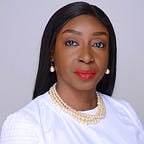PR lessons from managing Nigerian Idol publicity
I am not going to say it takes a village to put together a show such as Nigerian Idol. That is a cliché. But it took a cross-functional project team including sponsors, the rights holders and a production crew, to relaunch the Idols franchise in west Africa as Nigerian Idol. I was tasked with generating publicity and it marked my introduction to entertainment public relations (PR).
The first season of Nigerian Idol premiered in October 2010. Actor Anis Holloway and radio and TV presenter Misi Molu were the hosts while Audu Maikori, Jeffrey Daniel, of Shalamar fame, and Yinka Davies were the judges.
John Maxwell says that ‘talent is overrated’ and he explains that belief, passion, preparation, practice, teachability and character amongst other qualities are also important for success. However, Maxwell missed two points which can only be learnt from working on projects like Nigerian Idol. Indeed, “Talent is never enough” to win; sometimes it is the contestant from the biggest village that wins because in a reality TV show such as Idols, the audience is all-powerful. Secondly, “Talent is never enough” to generate publicity.
Having been thrown into entertainment PR from corporate communications, I quickly realised that entertainment PR was a whole new ball game. So, I had to think differently to achieve the PR goal of driving tune-in every Sunday for the live shows and the mid-week results shows. To do this, we could not just rely on hard sell but the newsy stories.
Promoting content such as Idols is about the backstories because the audience wants to connect with the contestants emotionally. I also learnt that people might deny it but they just don’t want contestants who can sing, they want contestants who also have star quality. So what the contestants wore were as important as their performances. The judges’ personal catchphrases and mannerism also drove publicity.
I did not just come upon these insights; they were gathered from research. Like a good PR campaign, research plays a huge role in putting together a good television show such as Nigerian Idol. Again, as with PR, the research is three-fold. The entire project team relied on research extensively at the planning stage. Then there was ongoing monitoring while the show aired and at the end of the season, there was evaluative research.
However, unlike today that you can conduct a poll on Twitter, Twitter had not caught on in Nigeria then. As such, the team had to conduct focus group interviews and vox pops to gather data. Also, because the broadcast was predominantly on terrestrial television networks, the only ways to monitor viewership were through the weekly votes and fan engagement on Facebook — as it was more popular than Twitter although adoption was in its infancy. Also, Instagram had just been created but not in use in Nigeria.
Research led to several changes in the second season, chief among them was replacing the season one hosts with IlRymz and Tiwa Savage. Ms Savage was not as famous as she is now but she was already a style star. Public relations agencies had to change too. The changes all paid off. Nigerian Idol season two was a jolly good ride and it produced the most successful winner of the Nigerian franchise to date, the gospel artiste, Mercy Chinwo.
After sponsoring “Nigerian Idol” for five seasons, Etisalat rested the show. However, the show makes a return for a sixth season this Sunday. With MultiChoice behind the production and broadcast on DStv and GOtv, one can expect a similar level of fan engagement as with “Big Brother Naija” and “The Voice Nigeria.” Whilst Etisalat had used social media to promote the show, our attempt at influencer marketing was unsuccessful. If you are familiar with how the influencer space evolved in Nigeria, you would know that most of the early adopters used the platform for activism.
Today, influencer marketing is hardly necessary. Publicity will be organic and we expect #NigerianIdol to trend every Sunday. Furthermore, now that contestants have learnt how to mobilise voters using social media, those who miss out on the Nigerian Idol title are sure of winning another prize, a fan base. You can read more about this in my “Lessons from Big Brother Naija Lockdown.”
